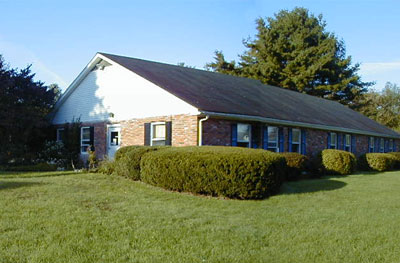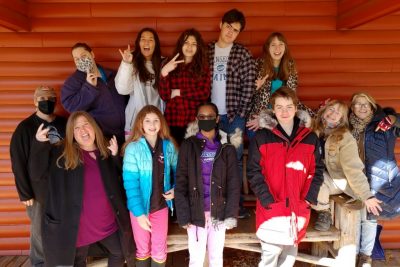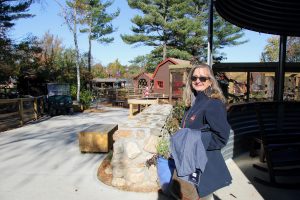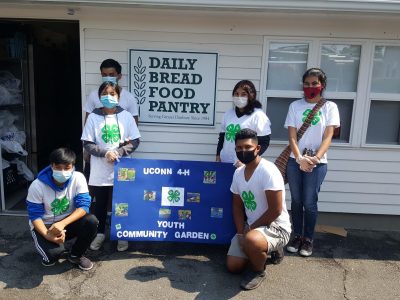
Location

Contact
Emily Picard
Fairfield County 4-H Educator
67 Stony Hill Road
Bethel, CT, 06801-8440
(203) 207-8440
County Resources
Fairfield County 4-H Clubs
Bridgeport
CT’s Beardsley Zoo 4-H Club (Waitlist)
- Linda Tomas ltomas@beardsleyzoo.org
- Denise Green Dgreen@beardsleyzoo.org
- Club Projects: Leadership
Easton
Birds of a Feather 4-H Club
- Ousama Fayek ousama.fayek@gmail.com
- Club Projects: Poultry
Fairfield
Cool Creators 4-H Club
- Nikki Kenney treschukenney@gmail.com
- Club Projects: Arts and Crafts
Oxford
Dogs Rule 4-H Club
- Alison Rogers ali.rogers44@gmail.com
- Club Projects: Dogs
Shelton
Gaelhawks #230 Robotics Team 4-H Club at Shelton High School
- Michele Piccolo mpiccolo@sheltonpublicshcools.org
- Rick Vogl rvogl@snet.net
- Club Projects: Robotics
- SHS Students Only
Gaelhawks First Lego Leauge
- Rick Vogl rvogl@snet.net
- Club Projects: Robotics
- SMS Students Only
Stratford
Fairfield County 4-H Leaders of Tomorrow
- Doreen Chiccarello chicfamily@aol.com
- Club Projects: Assorted
- Ages 7-10
Trumbull
Mathnasium of Trumbull 4-H Board Game Club
- Andrew Fisher trumbull@mathnasium.com
- Club Projects: Board games
XLR8 Robotics #30448 4-H Club
- Sonia Beri and Byung-Young Min xlr8robots@gmail.com
- Club Projects: Robotics
- Ages: Middle School
Waterbury
Power Surge 4-H Robotics
- Hogan Eng hoganeng@sbcglobal.net
- Justin St. Jean jsj21874@gmail.com
- Club Projects: Robotics
Independent Membership
- fairfield@uconn.edu
- Club Projects: Assorted
- Ages 7-18
Virtual
Biotechnology
- s.uconn.edu/biotech
- Club Projects: Biotechnology
Explorers
- Halie Shea Halie.Shea@uconn.edu
- Ages 5-6 Only
Public Speaking
Public Speaking - Level 1
📍 In Person: Sunday, 2/8/26 in Bridgeport
💻 Virtual Option: Saturday, 2/14/26
📝 Register by: 2/1/26
Rubrics
Coming soon. Email emily.picard@uconn.edu if you want them sooner.
Fairfield County 4-H Fair
4-H Fair
Fairfield County 4-H Fair is July 11, 2026 at CT's Beardsley Zoo near the Hansen building.
Fairfield County 4-H Fair Book with our Supporters 2025
Field Trips
Club Field Trips
Traveling out of state or overnight? As you prepare for your travel, there are three documents needed in the 4-H Office for overnight/out of state travel:
The first two items are requested two weeks prior to the trip/as soon as qualification is determined.
1) Itinerary with locations and names of all attendees.
2) Completed Risk Management Plan .pdf
3) Completed UConn 4-H Health Forms.pdf carried by authorized 4-H Volunteer traveling with youth and returned to 4-H Office post-trip.
Risk Management Planning Guide.pdf
If you have any additional adults who will be chaperoning, please let us know ASAP, to allow for ample time for screening. Please keep in mind that a registered 4-H volunteer must be in each vehicle if transportation is provided as part of the club activity.
If you have any additional questions, please do not hesitate to contact the 4-H Office.
<!
News
UConn 4-H: Making Magic Happen at the Connecticut Beardsley Zoo
Dedicated volunteer Linda Tomas shares the wonders of nature with hundreds of youth through the Connecticut Beardsley Zoo 4-H Club

The call of birds in the distance accompanies us while walking through the farmyard of Connecticut’s Beardsley Zoo in Bridgeport. Cattle amble up to the fence in greeting, and bison graze on a hillside in the distance. A wolf watches our progress as we move through the different habitats on the 52-acre property. UConn 4-H youth members experience this twice per month with the Connecticut Beardsley Zoo 4-H Club. It becomes a life transformative experience that shapes their college plans and careers.
All this is possible because Linda Tomas, a UConn 4-H volunteer and Connecticut’s Beardsley Zoo employee shares the magic with youth members of the club. Tomas grew up in Monroe, Connecticut. Her home was next to a large field and she brought the frogs, snakes, and caterpillars home. It was only natural that she studied zoology with an animal behavior concentration at Southern Connecticut State University. Tomas interned at Connecticut’s Beardsley Zoo during college, working with the animals and then returned and became a full-time employee after graduation.
Edith Valiquette, the UConn 4-H Fairfield County Educator, recruited Tomas as a volunteer in 1990, and she started the Connecticut Beardsley Zoo 4-H Club. The zoo provides support by hosting the club and having other staff members involved in the initiative.
“One of the big reasons to have zoos is it prompts kids to think about nature,” says Gregg Dancho, director of Connecticut’s Beardsley Zoo. “Beardsley Zoo is a wildlife habitat for the animals that are here and those that come in from the outside. We want it to be natural and an integral part of the community.”
The Connecticut Beardsley Zoo 4-H Club
The Connecticut Beardsley Zoo 4-H Club meets on Sunday mornings twice per month from September through May. The first meeting focuses on club business, the youth plan field trips, club activities, and public speaking events. A member of the zoo staff or another outside speaker also presents an educational topic.
The second monthly meeting is in the New England Farmyard. Members work with one of the animal areas for the year, feeding, cleaning, and providing animal enrichment. They can rotate to another animal area the following year.
“We started with a small group of youth,” Tomas recalls. “They work with our Heritage livestock breeds in the New England Farmyard. Up to 20 members are in the club each year; the current group is mostly 13-16-year-olds.”
The club uses national 4-H curriculum, and has public speaking, leadership, and civic engagement as focus areas. Members enhance their public speaking skills through presentations for zoo visitors. They also compete in county and state 4-H public speaking contests. Many club members have attended Citizenship Washington Focus and other national 4-H leadership programs.
“I have a great sense of pride listening to the youth presenting on the stage at the zoo and watching them with their animals. They have so much enthusiasm when they’re working with the public,” Tomas says.
Parents often add their youth to the waiting list before they turn seven to ensure they can take part since there is so much interest in the program. Those who join the club remain members for an average of seven to ten years. Tomas has mentored over 150 youth in her 35 years as a UConn 4-H volunteer.

“It’s rewarding to see the youth with the animals and watch them grow, earning respect from the animals,” Tomas says. “I also enjoy watching them teach the younger members. Seeing what careers, they pursue after 4-H is the final reward.” Many alumni have enrolled their children in the club, a true testament to the program’s value.
Over the years, Tomas has taken youth on field trips to other zoos throughout the Northeast and hosted sleepovers at the zoo. Youth work with Citizen Science projects and the myriad of other initiatives the zoo offers too. Recording and reporting rainfall was a recent opportunity.
Tomas has donated thousands of hours as a UConn 4-H volunteer, and other staff at Connecticut’s Beardsley Zoo are also instrumental in the club’s success. They provide support and resources during every club meeting and activity. Each new group of youth excites Tomas, and she is building a sustainable club model with her assistant leaders and the zoo staff.
The experiences youth have at the zoo are magical and inspire their future, what feels like a day at the zoo is a life transformative experience shaping our future leaders.
UConn 4-H is the youth development program of UConn Extension with the College of Agriculture, Health and Natural Resources (CAHNR). As part of the University of Connecticut, 4-H has access to research-based, age-appropriate information needed to help youth reach their full potential. The mission of 4-H is to assist all youth ages 5-18 in acquiring knowledge, developing leadership and life skills while forming attitudes that will enable them to become self-directing, productive and contributing members of their families and communities.
Follow UConn CAHNR on social media
Fairfield County 4-H Grows True Leaders
Fairfield County 4-H Grows True Leaders

Throughout the summer, 20 youth in the 4-H Community Garden Club have managed a one-acre garden in New Milford. They were led by leaders Anna Loor and her daughter Amira. Each youth worked eight hours every week at the garden and during 4-H time, learned the principles of seeding, planting, weeding, harvesting and garden pests.
Environmental Literacy 4-H Program
Environmental Workshops | Hands-On Environmental Learning for Youth
Environmental Workshops | Hands-On Environmental Learning for Youth
Overview
Our workshops are led by environmental educators who use positive youth development practices to inspire curiosity, confidence, and environmental stewardship. We offer engaging, hands-on programs for libraries, schools, and after-school settings, with all activities designed to be age-appropriate and interactive.
The fee for all workshops is $200 per hour. All materials are provided.
To book a workshop or request additional information, please contact us today at Emily.Picard@uconn.edu.
Intro to Geocaching
Ages: 7-18, parents encouraged to come
Class size max: 10
Time: 1 hour
Do you like exploring outdoors, finding hidden treasures, and solving puzzles? Then you'll love this adventure! We will learn about the hobby of geocaching, explore the app, go geocaching, and start to build your own geocaching toolkit! By the end of the workshop, you'll be ready to head out with your family on your own geocaching adventure! Participants can download the Geocaching app in advance or follow along with the group (but it's more fun for you if you have the app).
- I'll need to set up a library geocache with you in advance. They are super cool, and you'll get visitors to the library from all over. 🙂 There is one in Clinton called The Diary of Tom Riddle that's inspired me to launch one.
Tracking Wildlife
Ages: 7-18
Class size max: 10
Time: 1 hour
Have you seen footprints in the snow and wondered what animal was there? Join us to find out! We will explore some common wildlife that visit our yards and learn how to identify their tracks! Participants will leave with their own curated tracking guide and track replica molds!
Grow Your Own Microgreens
Ages: 7-18
Class size max: 20
Time: 1 hour
Microgreens are nutritious, beautiful, delicious, and fun to grow indoors! Participants will plant their own microgreens, learn how to use them in different recipes, and leave with an exploration guide designed to help them track the fast growth of their greens at home!
Nature Escape Room
Ages 11-18
Class size max 20
Time: 1 hour
Solve puzzles that reveal hidden information about the wonderful world of nature! Can you decode a message with a sypher, reveal a hidden message? Come put your detective skills to work while we learn about the secrets of nature.
Tree Identification
Ages: 11-18
Class size: Max 10 (adults welcome to accompany a child)
Time: 2 hours
Are you interested in learning how to identify the trees around us? Together we will learn some basic steps we can take and tools we can use to identify trees. Participants will collect samples and begin their own plant collection binder.
Microscope Discovery
Ages: 7-18
Class size: Max 10
Time: 1 hour
Have you ever seen sand under a microscope? If not, you should probably come to this workshop. Join us for a relaxing and yet stimulating session of up-close nature exploration where we will use kid-friendly microscopes to check out soil, sand, leaves, fur, feathers, and more!
What’s in Our Water Investigation
Ages: 7-18
Class size: Max 10
Time: 2 hours
Wait, there’s more than just water, in our water? Using landscape level models, we will explore what and how different things move through our ecosystem and into our waterways, how scientists monitor water conditions, and discover the impact humans have on the aquatic ecosystem.
Join 4-H
Join 4-H
Youth interest form